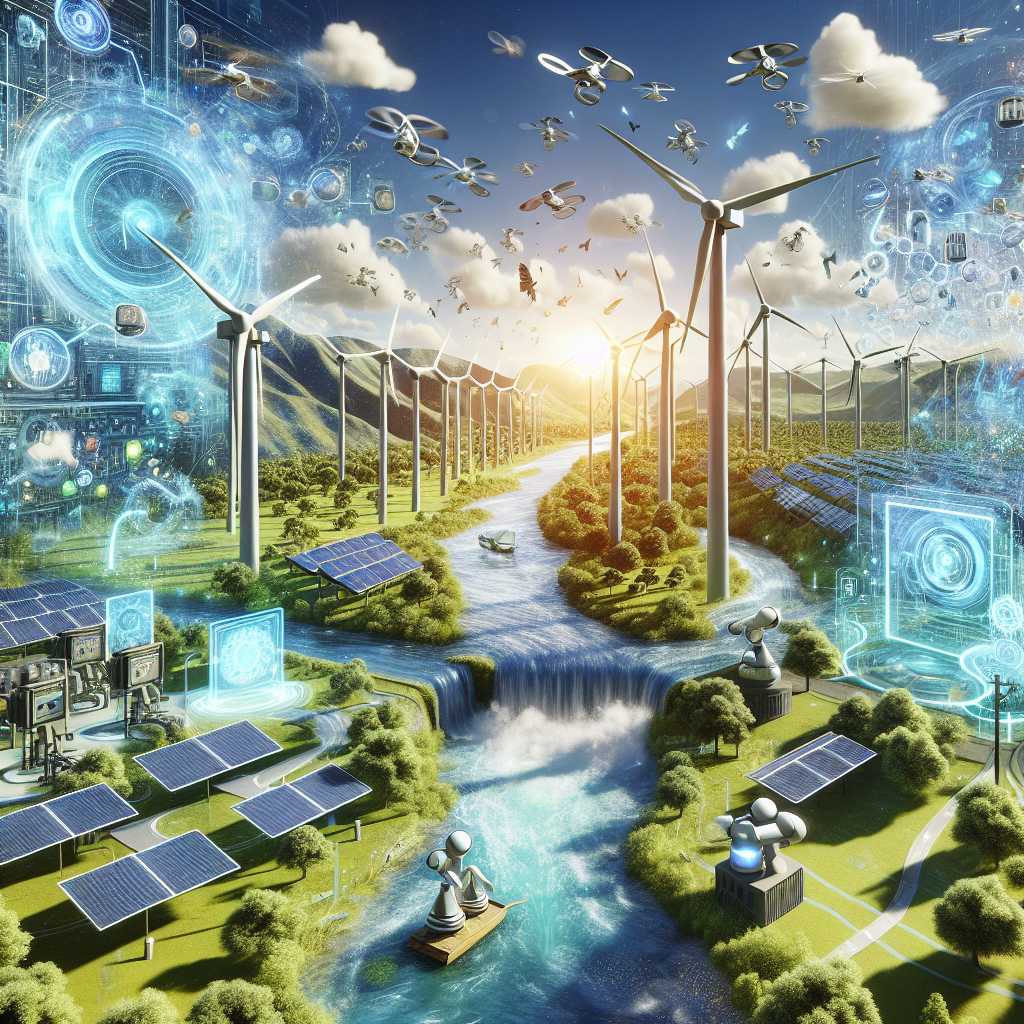As the world continues to grapple with the effects of climate change, the need for sustainable renewable energy sources has become increasingly urgent. The development and implementation of renewable energy technologies have the potential to reduce greenhouse gas emissions, combat global warming, and create a more sustainable future for generations to come. Artificial intelligence (AI) solutions are playing a crucial role in advancing renewable energy development by increasing efficiency, optimizing operations, and accelerating innovation in the sector.
AI technology is revolutionizing the renewable energy industry by providing solutions that can address key challenges facing the sector. From improving the efficiency of solar panels and wind turbines to optimizing energy storage systems and grid management, AI is transforming the way we produce and consume renewable energy. By harnessing the power of AI, renewable energy developers can enhance performance, reduce costs, and maximize the impact of clean energy solutions on a global scale.
One of the key benefits of AI solutions in renewable energy development is their ability to optimize energy production and consumption. AI algorithms can analyze vast amounts of data in real-time to predict energy demand, optimize energy generation, and improve overall system efficiency. For example, AI-powered predictive analytics can help renewable energy providers forecast weather patterns, anticipate energy demand fluctuations, and adjust production levels accordingly. By optimizing energy production and consumption, AI solutions can help reduce waste, lower costs, and increase the overall sustainability of renewable energy systems.
Another important application of AI in renewable energy development is in the optimization of energy storage systems. Energy storage is a critical component of renewable energy infrastructure, as it allows for the efficient capture and utilization of energy generated from sources such as solar and wind. AI algorithms can optimize energy storage systems by analyzing data on energy production, consumption patterns, and storage capacity to maximize efficiency and reduce waste. By using AI to optimize energy storage, renewable energy developers can enhance system reliability, increase grid stability, and improve overall energy sustainability.
In addition to optimizing energy production and storage, AI solutions are also being used to improve the efficiency of renewable energy technologies such as solar panels and wind turbines. AI algorithms can analyze data on energy production, system performance, and maintenance needs to identify areas for improvement and enhance overall system efficiency. For example, AI-powered drones can be used to inspect and monitor solar panels for damage or malfunctions, while AI algorithms can optimize the positioning of wind turbines to maximize energy generation. By using AI to improve the efficiency of renewable energy technologies, developers can increase output, reduce costs, and accelerate the transition to clean energy sources.
Furthermore, AI solutions are also playing a critical role in the management and optimization of renewable energy grids. As the demand for renewable energy continues to grow, grid operators face the challenge of integrating diverse energy sources, managing fluctuations in supply and demand, and ensuring grid stability. AI algorithms can analyze data on energy production, consumption, and grid performance to optimize grid operations, predict system failures, and improve overall reliability. By using AI to manage and optimize renewable energy grids, operators can enhance system efficiency, reduce downtime, and increase the overall sustainability of the grid.
Overall, AI solutions are revolutionizing the renewable energy industry by providing innovative solutions to key challenges facing the sector. By optimizing energy production and consumption, improving the efficiency of energy storage systems, enhancing renewable energy technologies, and optimizing grid operations, AI is helping to accelerate the development and deployment of sustainable renewable energy solutions. With the potential to reduce greenhouse gas emissions, combat climate change, and create a more sustainable future, AI solutions are playing a crucial role in advancing renewable energy development on a global scale.
FAQs:
Q: How can AI help improve the efficiency of renewable energy technologies?
A: AI algorithms can analyze data on energy production, system performance, and maintenance needs to identify areas for improvement and enhance overall system efficiency. For example, AI-powered drones can be used to inspect and monitor solar panels for damage or malfunctions, while AI algorithms can optimize the positioning of wind turbines to maximize energy generation.
Q: What role does AI play in optimizing energy storage systems?
A: AI algorithms can optimize energy storage systems by analyzing data on energy production, consumption patterns, and storage capacity to maximize efficiency and reduce waste. By using AI to optimize energy storage, renewable energy developers can enhance system reliability, increase grid stability, and improve overall energy sustainability.
Q: How does AI help manage and optimize renewable energy grids?
A: AI algorithms can analyze data on energy production, consumption, and grid performance to optimize grid operations, predict system failures, and improve overall reliability. By using AI to manage and optimize renewable energy grids, operators can enhance system efficiency, reduce downtime, and increase the overall sustainability of the grid.

